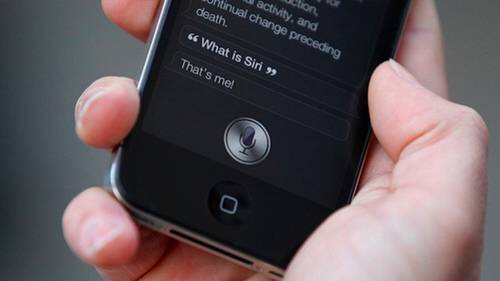
Tech pundits spend a lot of time wondering about the next black rectangle — that is, the next touchscreen mobile or tablet computer. How many inches and pixels of screen will it have? How many cores? How thin and light will it be? But we all know those questions will only apply for a few more years at most.
If you observe the trends in sensors, networked objects, and AI, it begins to seem inevitable that, while they’re certainly the present, black rectangles are not the future. Computing can be much more intelligent and subtle than that. It can blend in and enhance our environment. Think visual or auditory signals triggered by the world around you, not navigating through apps on a screen.
In fact, the most innovative tech companies are already working on getting hardware and software out of our way entirely, so that we don’t have to really use them at all. They just happen.
As one of my favorite tech observers, Kontra, noted this week, this seems to pose a problem for Apple. Apple is unique among mobile hardware manufacturers by having the whole business, hardware and software alike, rolled up into one. For Apple, the interface is the experience it sells, and the delightful hardware is the place where we make contact with it. If we’re headed for a world where hardware disappears into the background, what does Apple have left to sell?
As Kontra observes, Apple’s Siri interface is the key to riding out this transition. In this future we’re imagining, there will be a wider variety of ways to interact with the computer. Not only will we use touch, movement, and voice, we’ll be passively interacting with it all the time just by going about our business. The key to this computing experience is having an aware, intelligent assistant application that can understand all these inputs, and Siri is Apple’s hope.
AI Isn’t Easy
It’s a tough climb, though. As my colleague John Paul Titlow writes, even though voice control’s potential is amazing, it’s pretty clunky so far. Kontra’s post highlights the underlying challenges of gathering and understanding enough data to make this work, and we’ve already seen how much trouble Apple had there with Maps, a comparatively simple problem to solve.
One wonders whether Google’s slow and steady approach will bear out, even though Apple is definitely winning the present, compared to Google’s hardware partners individually. Google’s Android strategy has created hundreds of millions of mobile Google users, no matter whose devices or OS versions they’re using. Google has gathered tons of data about the world, and data is Google’s specialty.
For that reason, Google Now is a much better AI assistant than Siri right now. I’d be using it if there was an Android device I liked better than the iPhone all around.
But again, that won’t matter for long. Google is already working on heads-up display glasses as a future interface. Maybe Apple is, too, but they certainly aren’t talking about it yet. By not worrying overly much about hardware and just concentrating on getting the software out there to collect the data, Google looks like it could leapfrog the black rectangle era and dominate the next one.
But Apple has a way of surprising everyone by announcing that the new era is already here. And when Apple does that, it unveils a new kind of computer and says you can have it next week. With the kinds of profits and loyalty Apple has built, it would be foolish to rule out another surprise.

















